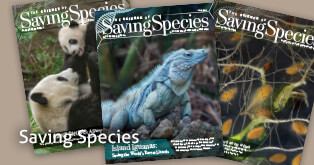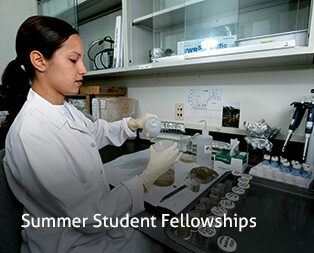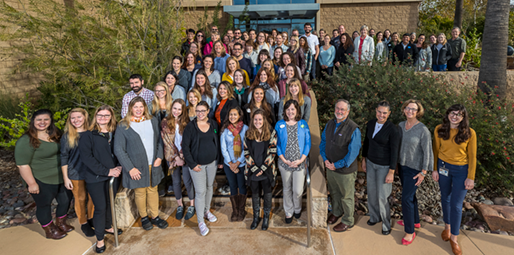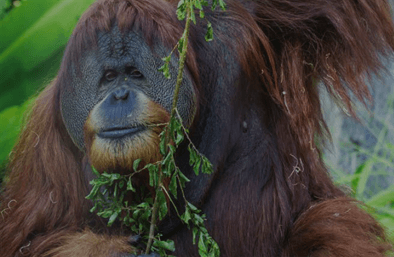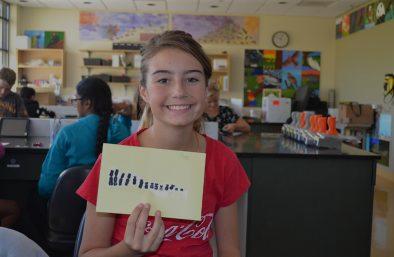Alison Greggor, Ph.D.
Goldenberg, S.Z., J.M. Parker, S.M. Chege, A.L. Greggor, M. Hunt, N. Lamberski, K.A. Leigh, H.H. Nollens, K.A. Ruppert, C. Thouless, G. Wittemyer, M.A. Owen. 2022. Revisiting the 4 R’s: Improving post-release outcomes for rescued mammalian wildlife by fostering behavioral competence during rehabilitation. Frontiers in Conservation Science 3:910358.Greggor, A.L., B. Masuda, A.C. Sabol, R.R. Swaisgood. 2022. What do animals learn during anti‑predator training? Testing for predator‑specific learning in ‘alalā (Corvus hawaiiensis). Behavioral Ecology and Sociobiology 76 (165). 1-11.
Sabol, A.C., A.L. Greggor, B. Masuda, R.R. Swaisgood. 2022. Testing the maintenance of natural responses to survival‑relevant calls in the conservation breeding population of a critically endangered corvid (Corvus hawaiiensis). Behavioral Ecology and Sociobiology 76(21). 1-13.
Shiels, A.B., L.H. Crampton, D.R. Spock, A.L. Greggor, K. Earnest, L. Berry, B. Masuda. 2022. Testing Goodnature A24 rat trap excluders and trap height placement to prevent non-target bird mortality. Management of Biological Invasions 13 (3). 534-556.
Smith, B.P., L. Snijders, J. Tobajas, K. Whitehouse-Tedd, L. van Bommel, B. Pitcher, C.C. St. Clair, R.G. Appleby, N.R. Jordan, A.L. Greggor. 2022. Deterring and repelling wildlife. Pages 210-232 in Wildlife Research in Australia: Practical and Applied Methods. Edited by B. Smith, H. Waudby, C. Alberthsen, and D. Morrant. CSIRO Publishing, Melbourne, Australia.
2021. Using Change Models to Envision Better Applications of Animal Behavior Research in Conservation Management and Beyond. Frontiers in Conservation Science 2. 1-7.
Chock, R.Y., B. Clucas, E.K. Peterson, B.F. Blackwell, D.T. Blumstein, K. Church, E. Fernández-Juricic, G. Francescoli, A.L. Greggor, P. Kemp, G.M. Pinho, P.M. Sanzenbacher, B.A. Schulte, P. Toni. 2021. Assessing Potential Impacts of Solar Power Facilities on Wildlife Utilizing Animal Behavior Research. Annual Meeting of the Western Section of The Wildlife Society. DOI: http://wildlifeprofessional.org/western/tws_abstract_detail.php?abstractID=2733&k=Wkv801R/V0PDw.
Eccles, G.R., E.J. Bethell, A.L. Greggor, C. Mettke-Hofmann. 2021. Individual Variation in Dietary Wariness Is Predicted by Head Color in a Specialist Feeder, the Gouldian Finch. Frontiers in Ecology and Evolution. DOI: https://doi.org/10.3389/fevo.2021.772812.
Greggor, A.L., B. Masuda, J.M. Gaudioso-Levita, J.T. Nelson, T.H. White, D.M. Shier, S.M. Farabaugh, R.R. Swaisgood. 2021. Pre-release training, predator interactions and evidence for persistence of anti-predator behavior in reintroduced `alalā, Hawaiian crow. Global Ecology and Conservation. DOI: https://doi.org/10.1016/j.gecco.2021.e01658.
Lee, H.N., A.L. Greggor, B. Masuda, R.R. Swaisgood. 2021. Anti-Predator Vigilance as an Indicator of the Costs and Benefits of Supplemental Feeding in Newly Released ‘Alalā (Corvus hawaiiensis). Frontiers in Conservation Science. DOI: https://doi.org/10.3389/fcosc.2021.701490.
Shaw, R.C., A.L. Greggor, J.M. Plotnik. 2021. The Challenges of Replicating Research on Endangered Species. Animal Behavior and Cognition 8 (2). 240-246.
Smetzer, J.R., A.L. Greggor, K.L. Paxton, B. Masuda, E.P. Paxton. 2021. Automated telemetry reveals post-reintroduction exploratory behavior and movement patterns of an endangered corvid, ʻAlalā (Corvus hawaiiensis) in Hawaiʻi, USA. Global Ecology and Conservation 26 (e01522).
Chock, R.Y., B. Clucas, E.K. Peterson, B.F. Blackwell, D.T. Blumstein, K. Church, E. Fernández-Juricic, G. Francescoli, A.L. Greggor, P. Kemp, G.M. Pinho, P.M. Sanzenbacher, B.A. Schulte, P. Toni. 2020. Evaluating potential effects of solar power facilities on wildlife from an animal behavior perspective. Conservation Science and Practice 319.
Flanagan, A.M., C. Rutz, S. Farabaugh, A.L. Greggor, B. Masuda, R.R. Swaisgood. 2020. Inter-aviary distance and visual access influence conservation breeding outcomes in a territorial, endangered bird. Biological Conservation 242.
Greggor, A.L., B. Masuda, A.M. Flanagan, R.R. Swaisgood. 2020. Age-related patterns of neophobia in an endangered island crow: implications for conservation and natural history. Animal Behaviour 160. 61-68.
Greggor, A.L., O. Berger-Tal, D.T. Blumstein. 2020. The rules of attraction: the necessary role of animal cognition in explaining conservation failures and successes. Annual Review of Ecology, Evolution, and Systematics 51. 483-503.
Mettke-hofmann, C., G.R. Eccles, A.L. Greggor, E.J. Bethell. 2020. Cognition in a Changing World: Red-Headed Gouldian Finches Enter Spatially Unfamiliar Habitats More Readily Than Do Black-Headed Birds. Frontiers in Ecology and Evolution 8. 1-13.
Berger-Tal, O., A.L. Greggor, B. Macura, C.A. Adams, A. Blumenthal, A. Bouskila, U. Candolin, C. Doran, E. Fernández-Juricic, K.M. Gotanda, C. Price, B.J. Putman, M. Segoli, L. Snijders, B.B.M. Wong, D.T. Blumstein. 2019. Systematic evidence synthesis as part of a larger process: a response to comments on Berger-Tal et al. Behavioral Ecology. DOI: 10.1093/beheco/ary163.
Greggor, A.L., D.T. Blumstein, B.B.M. Wong, O. Berger-Tal. 2019. Using animal behavior in conservation management: a series of systematic reviews and maps. Environmental Evidence 8 (Suppl 1) :23.
Greggor, A.L., C. Price, D. Shier. 2019. Examining the efficacy of anti-predator training for increasing survival in conservation translocations: A systematic review protocol. Environmental Evidence 8 (Suppl 1) :11.
Greggor, A.L., P.C. Trimmer, B.J. Barrett, A. Sih. 2019. Challenges of learning to escape evolutionary traps. Frontiers in Ecology and Evolution. DOI: https://doi.org/10.3389/fevo.2019.00408.
Price, C., P.B. Banks, A.L. Greggor. 2019. What evidence exists on the effectiveness of different types of olfactory lures as attractants for invasive mammalian predators? A systematic map protocol. Environmental Evidence 8 (Suppl 1) :12.
Snijders, L., A.L. Greggor, F. Hilderink, C. Doran. 2019. Effectiveness of animal conditioning interventions in reducing Human-wildlife conflict: A systematic map protocol. Environmental Evidence 8 (Suppl 1) :10.
Swaisgood, R.R., A. Greggor. 2019. Applications of animal behavior to conservation. Encyclopedia of Animal Behavior, (2nd ed.) vol. 1. 220-229. Elsevier, Academic Press.
Berger-Tal, O., A.L. Greggor, B. Macura, C. Adams, A. Blumenthal, A. Bouskila, U. Candolin, C. Doran, E. Fernández-Juricic, K.M. Gotanda, C. Price, B.J. Putman, M. Segoli, L. Snijders, B.B.M. Wong, D.T. Blumstein. 2018. Systematic reviews and maps as tools for applying behavioral ecology to management and policy. Behavioral Ecology. DOI: https://doi.org/10.1093/beheco/ary130.
Greggor, A.L., G. McIvor, N.S. Clayton, A. Thornton. 2018. Wild jackdaws are wary of objects that violate expectations of animacy. Royal Society Open Science 5. 181070.
Greggor, A.L., G.A. Vicino, R.R. Swaisgood, A. Fidgett, D. Brenner, M.E. Kinney, S. Farabaugh, B. Masuda, N. Lamberski. 2018. Animal Welfare in Conservation Breeding: Applications and Challenges. Frontiers in Veterinary Science 5:323. DOI: 10.3389/fvets.2018.00323.
Greggor, A.L., P. Hackett. 2018. Categorization by the animal mind. Pages 1-19 in Mereologies, Ontologies and Facets: The Categorical Structure of Reality. Lexington Books (Rowman Littlefield), Lanham, USA.
Greggor, A.L., A. Thornton, N.S. Clayton. 2017. Harnessing learning biases is essential for applying social learning in conservation. Behavioral Ecology and Sociobiology 71(16).
Greggor, A.L., K.A. Spencer, N.S. Clayton, A. Thornton. 2017. Wild jackdaws’ reproductive success and their offspring’s stress hormones are connected to provisioning rate and brood size, not to parental neophobia. General and Comparative Endocrinology 243. 70-77.
Greggor, A.L., O. Berger-Tal, D.T. Blumstein, L. Angeloni, C. Bessa-Gomes, B. Blackwell, C.C. St Clair, K. Crooks, S. de Silva, E. Fernández-Juricic, S.Z. Goldenberg, S. Mesnick, M. Owen, C.J. Price, D. Saltz, C.J. Schell, A. Suarez, R.R. Swaisgood, C.S. Winchell, W.J. Sutherland. 2016. Research priorities from animal behavior for maximizing conservation progress. Trends in Ecology and Evolution 31(12). 953-964.
Greggor, A.L., A. Thornton. 2016. Convergent Evolution of Intelligence. Encyclopedia of Evolutionary Psychological Science. Edited by T.K. Shackelford, and V.A. Weekes-Shackelford. Springer International Publishing,
Greggor, A.L., J.W. Jolles, A. Thornton, N.S. Clayton. 2016. Seasonal changes in neophobia and its consistency in rooks: the effect of novelty type and dominance position. Animal Behaviour 121. 11-20.
Greggor, A.L., G.E. Mclvor, N.S. Clayton, A. Thornton. 2016. Contagious risk taking: social information and context influence wild jackdaws’ responses to novelty and risk. Scientific Reports 6(27764).
Greggor, A.L., N.S. Clayton, A.J.C. Fulford, A. Thornton. 2016. Street smart: faster approach towards litter in urban areas by highly neophobic corvids and less fearful birds. Animal Behaviour 117. 123-133.
Greggor, A.L., M.E. Laidre. 2016. Food fights: aggregations of marine hermit crabs (Pagurus samuelis) compete equally hard for food- and shell-related carrion. Bulletin of Marine Science 92. 293-303.
Greggor, A.L., A. Thornton, N.S. Clayton. 2015. Neophobia is not only avoidance: improving neophobia tests by combining cognition and ecology. Current Opinion in Behavioral Sciences 6. 82-89.
Laidre, M.E., A.L. Greggor. 2015. Swarms of swift scavengers: ecological role of marine intertidal hermit crabs in California. Marine Biology 162. 969-977.
Greggor, A.L., N.S. Clayton, B. Phalan, A. Thornton. 2014. Translating cognitive insights into effective conservation programs: Reply to Schakner et al. Trends in Ecology and Evolution 29(12). 652-653.
Greggor, A.L., N.S. Clayton, B. Phalan, A. Thornton. 2014. Comparative cognition for conservationists. Trends in Ecology and Evolution 29(9). 489-495.
Greggor, A.L. 2012. A functional paradigm for evaluating culture: An example with cetaceans. Current Zoology 58(2). 271-286.



